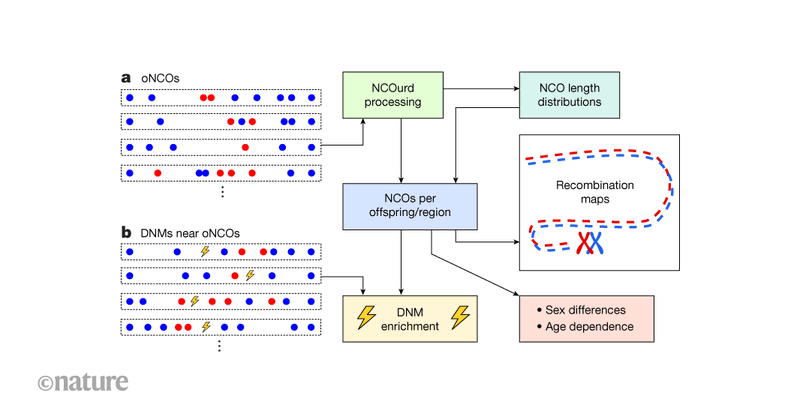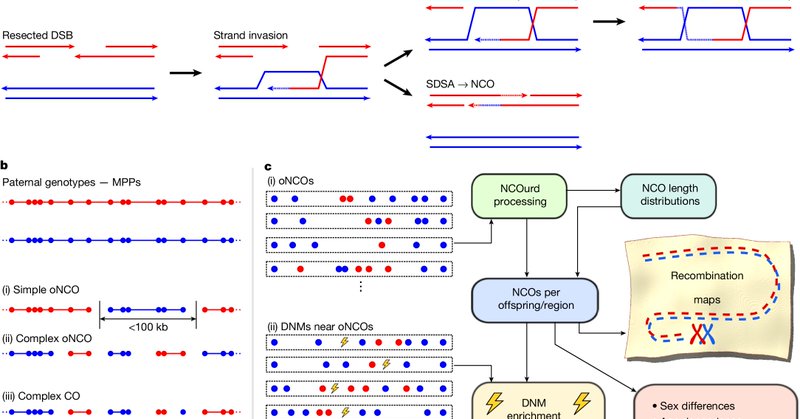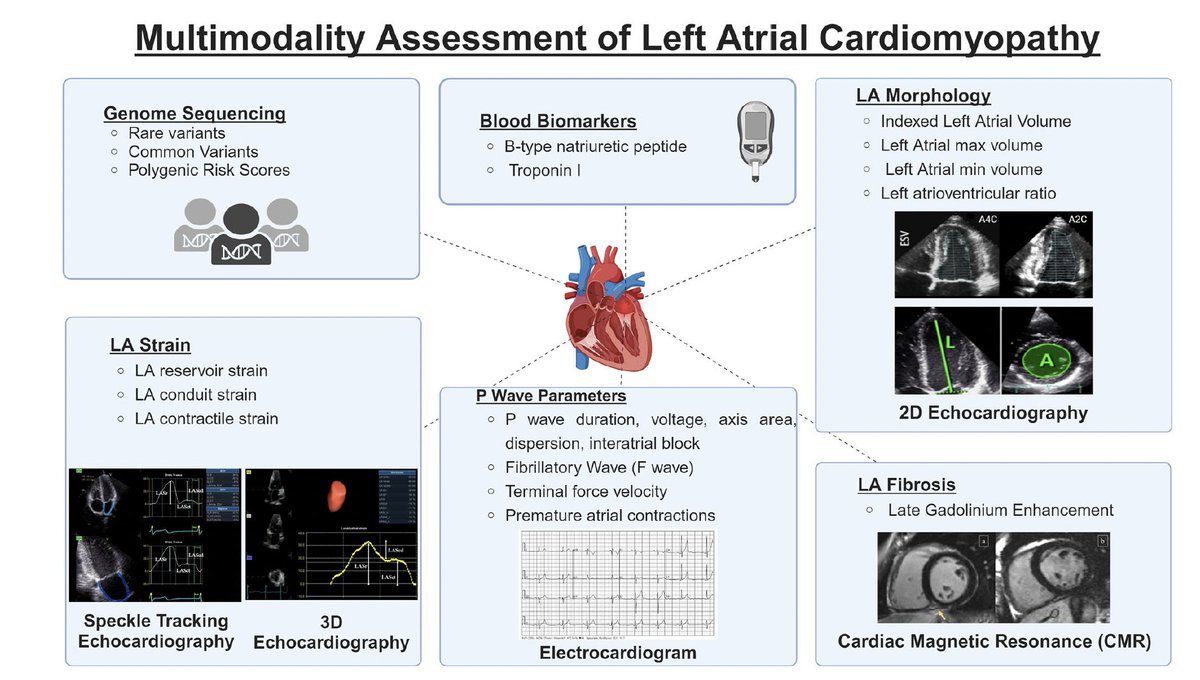
Patrick Sulem
@patsule
Followers
322
Following
488
Media
7
Statuses
464
MD, Co-managing director deCODE genetics - Amgen
reykjavik
Joined December 2010
Sequence diversity lost in early pregnancy | Nature @nature congrats to all collaborators on this landmark paper
nature.com
Nature - Around 1 in 136 pregnancies is lost due to a pathogenic small sequence variant genotype in the fetus.
4
32
100
New in Nature Metabolism: CNS GIPR and GLP-1R are both essential for weight loss response to a GIPR-Ab/GLP-1 peptide–antibody conjugate in mice—and this signaling happens through brain regions that reach outside the blood–brain barrier. This provides a new perspective on central
Today, @NatMetabolism published new preclinical research in mice around blocking GIPR and activating GLP-1R. 🧬🔬 This study was led by @DanielJDrucker, Endocrinologist and Professor at @UofT, and Murielle Véniant-Ellison, Scientific VP at Amgen leading #obesity research. 🔗
1
5
42
The most fun image & video creation tool in the world is here. Try it for free in the Grok App.
0
215
2K
Delighted to see LLF580 (efimosfermin alfa) acquired by @GSK, an FGF21 biologic for MASH. Thanks to @BostonPharm for believing in this idea. Third NIBR-born spin-out to be acquired for approx $1 bn or more.
endpoints.news
GSK to pay $1.2B upfront to Boston Pharmaceuticals for efimosfermin alfa, a MASH drug candidate. Deal includes $800M in milestone payments, with plans for 2029 launch.
1
3
31
At the @MilkenInstitute Global Conference panel, we discussed how AI, genetics & protein engineering are transforming drug discovery. From our research targeting Lp(a) to uncovering potentially protective mutations in obesity, we’re entering a new era of precision and
1
5
23
Correction: MC4R deletion increases the BMI (not reduce).
1
1
5
Beautiful GWAS study of body mass index (BMI) from deCODE identifying a new risk gene FRS3 associated with BMI with supporting evidence from multiple ancestries. I particularly like the whole genome sequencing (WGS) analysis in the UK Biobank where the authors found a
Happy to share this work - great collaboration with @patsule, Andrea and many others! We report four missense variant in FRS3, each enriched in different ancestries, that associate with BMI. https://t.co/mzL2mwvGdz
1
18
85
Fig. 2: World maps showing the allele frequency distribution of the four FRS3 missense variants identified in the study. | Nature Communications @NatureComms obesity and genetics. Ancestry specific variants Value of diverse ancestry
1
2
8
Interesting rare variant study from deCODE reporting a new risk gene for bipolar disorder: HECTD2, whose gene product appears to interact with lithium target GSK3β. This is the second interactor of GSK3β to be linked to bipolar disorder (first one is AKAP11). Thorgeirsson et
2
13
62
Analyses of rare genetic variants, especially in coding regions, provide unique insights into causal disease mechanisms — much more straightforward than common variant analyses🧬 In deCODE (Iceland) and UK Biobank, loss-of-function variants in HECTD2 and AKAP11 were associated
1
18
85
FRS3 as a BMI-associated gene, encoding an adaptor protein known to act downstream of BDNF and TrkB, which regulate appetite, food intake, and energy expenditure through unknown signaling pathways @NatureComms
https://t.co/6qEu2lyBbN
#obesity #genetics
nature.com
Nature Communications - Understanding the underlying pathophysiology of obesity can help prevent this condition. Here, the authors perform a GWAS of BMI in diverse ancestries, finding four missense...
1
2
8
Happy to share this work - great collaboration with @patsule, Andrea and many others! We report four missense variant in FRS3, each enriched in different ancestries, that associate with BMI. https://t.co/mzL2mwvGdz
nature.com
Nature Communications - Understanding the underlying pathophysiology of obesity can help prevent this condition. Here, the authors perform a GWAS of BMI in diverse ancestries, finding four missense...
1
8
27
@PalssonGunnar @decodegenetics @Skarkalinn @hakon_jon @stefansson_oa @hannespetur @patsule Research briefing summarizing the work
nature.com
Nature - A census reveals sex-specific differences in sites that show recombination.
1
1
1
@PalssonGunnar @decodegenetics @Skarkalinn @hakon_jon @stefansson_oa @hannespetur @patsule
https://t.co/UX1goX35xD - Sharing link for main paper.
0
1
2
Complete human recombination maps | @Nature @bvhalldorsson . A journey started 15 years ago.
nature.com
Nature - Complete human recombination maps are presented that enable exploration of both cross-over and non-cross-over events during meiosis, with the potential to provide insight into the causes...
0
1
2
So happy to see this published in NatComms! https://t.co/DGEdvJHfLg Rare variant assocs with birth wt identify 9 genes. Insights into links btwn earlygrowth and later metabolic health. Great collabs btwn teams Exe&Camb. Amazing resources of UKB & deCODE made it possible.
nature.com
Nature Communications - An exome-wide association study for fetal and maternal rare deleterious variants affecting the normal variation in birth weight identifies nine genes involved in adipose...
1
19
58
Cardiomyopathy —Genomic basis of dilated cardiomyopathy unravelled https://t.co/sgYy6UntTT
https://t.co/g39RkCdz7J —Atrial cardiomyopathy of Athlete's heart https://t.co/wAWpfLMcN2
2
36
138
A novel role for PCSK9 inhibitors? At #AHA2024, we showed that early initiation of evolocumab was associated with fewer arterial aneurysms @TIMIStudyGroup @AndreZimerman
In FOURIER and FOURIER-OLE, earlier initiation of #evolocumab was associated with fewer AAA and non-AAA aneurysmal events, suggesting that PCSK9 inhibitors may prevent the formation and progression of arterial aneurysms. @PrakritiGaba #AHA24
2
15
74
In FOURIER and FOURIER-OLE, earlier initiation of #evolocumab was associated with fewer AAA and non-AAA aneurysmal events, suggesting that PCSK9 inhibitors may prevent the formation and progression of arterial aneurysms. @PrakritiGaba #AHA24
0
35
66
Still, the genetic evidence to support NRK2 is not overwhelming
0
1
2

























